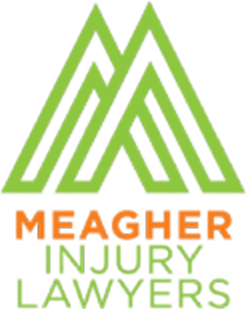Picture this: you’re cruising down the streets of Louisville, the wind gently caressing your face as you navigate through the bustling city. Suddenly, the screech of brakes pierces the air, and before you know it, you’re involved in a car accident.
It’s a situation none of us want to find ourselves in, but unfortunately, accidents happen. So, what should you do next? How can you ensure your safety and protect your rights?
In this guide, we will walk you through the essential steps to take after a car accident in Louisville. Trust us, you won’t want to miss this vital information.
Contact the Police
After a car accident in Louisville, it’s crucial to contact the police immediately. When an accident occurs, it’s important to prioritize the safety and well-being of everyone involved. By contacting the police, we can ensure that the incident is properly documented, and necessary actions can be taken.
Once the police arrive at the scene, they’ll assess the situation, gather information, and create an official accident report. This report is essential for insurance claims and legal proceedings. It contains vital details such as the date, time, location, and parties involved in the accident. Additionally, it may include witness statements, photographs, and any other relevant information.
Notifying the police also helps in determining fault and liability. They’ll evaluate the circumstances surrounding the accident and determine if any traffic laws were violated. This information is invaluable when negotiating with insurance companies or seeking compensation for damages.
Furthermore, involving the police provides a neutral third-party perspective. Their presence can prevent any potential conflicts or disputes between parties involved. Their primary objective is to maintain peace and ensure fairness, making the process more efficient and unbiased.
Exchange Information With the Other Driver
To ensure a smooth post-accident process, it’s important to exchange information with the other driver involved. After making sure everyone is safe and contacting the police, it’s crucial to gather essential details from the other driver. This information will be vital for insurance claims and potential legal proceedings.
Start by exchanging basic information such as names, phone numbers, and addresses. Make sure to also gather the other driver’s insurance information, including the company name and policy number. Additionally, it’s important to note the make, model, and license plate number of the other vehicle.
In case there are witnesses present, try to obtain their contact information as well. Their statements can provide valuable evidence in case of disputes or investigations. Furthermore, it’s recommended to take pictures of the accident scene, including the damage to both vehicles and any skid marks or road signs that may be relevant.
Seek Medical Attention if Necessary
If there are any injuries sustained during the car accident, it’s important to promptly seek medical attention. The well-being of everyone involved should be the top priority. Injuries can range from minor cuts and bruises to more serious conditions like whiplash or head trauma. Even if you feel fine initially, it’s crucial to remember that some injuries may not show symptoms right away. A medical professional will be able to assess your condition thoroughly and provide the necessary treatment or refer you to a specialist if needed.
Once you have determined that medical attention is necessary, call an ambulance or have someone take you to the nearest emergency room. It’s essential to document all medical evaluations, treatments, and expenses related to the accident. This documentation will be crucial when filing an insurance claim or pursuing legal action.
Furthermore, seeking medical attention promptly can also help strengthen your case if you decide to pursue a personal injury claim. Insurance companies often look for any opportunity to minimize their liability, and delaying medical treatment may provide them with grounds to argue that your injuries weren’t caused by the accident.
Document the Accident Scene
You should immediately begin documenting the accident scene. This step is crucial in ensuring that you have accurate and detailed evidence of the incident.
The first thing you should do is take photographs of the entire scene, capturing any visible damages to the vehicles involved, skid marks, and any other relevant details. It’s important to take multiple angles and close-up shots to provide a comprehensive view.
Additionally, you should gather information from any witnesses present at the scene. You should obtain their names, contact information, and statements regarding what they witnessed. This information can be valuable when filing an insurance claim or if the case goes to court.
Lastly, you should keep all the documents, photographs, and notes in a safe place to ensure that they are easily accessible when needed.
Notify Your Insurance Company
After thoroughly documenting the accident scene, the next important step is to inform your insurance company about the incident. This step is crucial as it allows you to begin the claims process.
Once you’ve gathered all the necessary information about the accident, such as the date, time, location, and the details of the parties involved, you should contact the other driver’s insurance company as soon as possible.
When contacting the insurance companies, you should be prepared to provide them with all the relevant details of the accident. This includes information about the other drivers involved, any witnesses present, and a description of the damages sustained. It’s helpful to have the policy number and the contact information of the other drivers involved on hand during this call.
Frequently Asked Questions
How Long Do I Have to Report the Car Accident to My Insurance Company?
You should report the car accident to our insurance company as soon as possible. It is important to contact them within the time frame specified in your policy to ensure proper coverage.
Do I Need to Take Photographs of the Accident Scene Even if the Damage to My Vehicle Is Minimal?
Yes, it’s important to take photographs of the accident scene, even if the damage to your vehicle is minimal. This can provide valuable evidence for insurance claims and help establish fault in the accident.
Should I Consult With an Attorney After a Car Accident, Even if My Injuries are Minor?
Yes, you should consult with an attorney after a car accident, even if you have what you consider to be minor injuries, such as neck or back pain. Your injury claim may be worth more than you think. Also, an injury lawyer can provide guidance on insurance claims and ensure your rights are protected.
What Should I Do if the Other Driver Involved in the Accident Doesn’t Have Insurance?
If the other driver involved in the accident doesn’t have insurance, it’s important to gather as much information as possible, such as their name, contact details, and vehicle information. We should also report the incident to the police and notify our own insurance company. If you have uninsured motorist insurance coverage on your automobile, or a relative you reside with has such coverage on their automobile, you should file an uninsured motorist claim under said policy for your damages resulting from your injuries.
Will My Insurance Rates Increase if I File a Claim for a Car Accident That Was Not My Fault?
No, your insurance premium rates will not increase if you file a claim for a car accident in Kentucky that was not our fault. It is important to report the accident to your insurance company and provide them with all the necessary information. Per Kentucky statute, insurance companies cannot raise your rates for filing a claim under your policy if the accident is not deemed to be your fault.
Conclusion
In conclusion, it’s crucial to take immediate action after a car accident in Louisville. Contact the police to ensure a proper investigation, exchange information with the other driver, and seek medical attention if needed. Documenting the accident scene and notifying your insurance company are also essential steps to protect yourself and ensure a smooth claims process. By following these steps, you can navigate through the aftermath of a car accident effectively.

